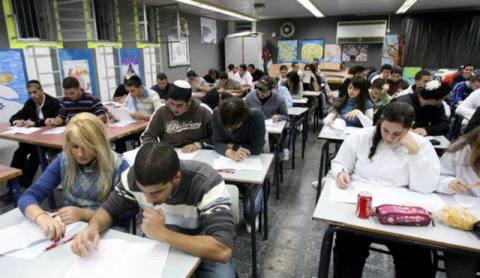Outsourced away: Israel's education system
The privatization of the educational system could have led to better achievement, higher efficiency and budgetary savings. But the way it is being carried out today, at the same time the Education Ministry shirks its responsibility and commitments to students and parents – the damage is greater than the benefits. In general, parents pay more and in return they receive educational services on a lower level from contract worker teachers employed under disgraceful conditions.
The Education Ministry does see itself as the responsible party, and education and its quality depend on the interests of private bodies, which depend on – amongst other things – commercial sponsorships. The results of international exams show that the educational achievements of Israeli pupils are deteriorating. At the same time, the gaps between students from different groups (rich and poor, Arabs and Jews) are growing. Outsourcing did not reduce the costs of education either, and there is a suspicion that in some cases it even made them more costly. The state comptroller found that in some cases – for example in the area of student health services – the Education Ministry pays today, after privatization, more than it paid in the past. In certain cases the comptroller found that the Education Ministry is incapable of supervising the various projects, and as a result it has been dragged into making excessive payments.
The Education Ministry must act with transparency, and reconsider the privatization process, which, as it is conducted today, is incompatible with the law on national public education.

